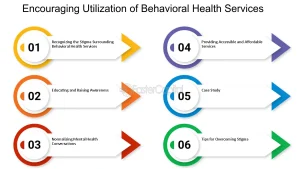Access to mental health services is a critical component of overall healthcare, yet it remains a complex issue influenced heavily by health insurance coverage. The interplay between mental health and health insurance can significantly affect the quality, accessibility, and affordability of mental health care. This article explores how health insurance impacts mental health services, the challenges faced by individuals seeking care, and the ongoing efforts to improve access and quality of mental health care.

Understanding Mental Health Services
Mental health services encompass a broad range of treatments and support systems designed to help individuals manage mental health conditions. These services can include:
- Therapy and Counseling: Individual, group, and family therapy aimed at addressing emotional and psychological challenges.
- Medication Management: Prescribing and monitoring psychiatric medications to manage conditions like depression, anxiety, and bipolar disorder.
- Crisis Intervention: Immediate support during mental health emergencies, including hospitalization if necessary.
- Rehabilitation Services: Support for individuals recovering from severe mental health issues, including vocational training and community support.
The Role of Health Insurance
Health insurance plays a pivotal role in determining access to these services. Insurance coverage can affect various aspects of mental health care, including treatment options, provider availability, and financial burden.
The Positive Influence of Insurance Coverage
Increased Access to Services
Having health insurance can significantly increase access to mental health services. Insured individuals are more likely to seek treatment for mental health conditions due to reduced financial barriers. Insurance often covers a range of services, making it easier for individuals to access therapy, medication, and other necessary treatments.
Integrated Care Models
Many health insurance plans are increasingly adopting integrated care models that combine physical and mental health services. This approach recognizes the connection between mental and physical health and allows for more comprehensive care. For example, patients may receive mental health screenings during routine physical exams, leading to earlier identification and treatment of mental health issues.
Preventive Services
Under the Affordable Care Act (ACA), many health insurance plans are required to cover preventive services without cost-sharing. This includes screenings for depression and other mental health conditions. By promoting preventive care, insurance can help identify mental health issues early, which is crucial for effective treatment.
Challenges Faced by Insured Individuals
Despite the benefits of health insurance, several challenges persist that can hinder access to mental health services.
Limitations on Coverage
Not all health insurance plans provide comprehensive coverage for mental health services. Some plans may impose strict limits on the number of therapy sessions allowed per year or restrict coverage for certain treatments. This can lead to gaps in care for individuals who require ongoing support.
Network Restrictions
Many insurance plans operate with a network of approved providers. If a mental health professional is out of network, individuals may face significantly higher costs or find themselves unable to access certain specialists. This can be particularly challenging in rural areas where mental health providers may be scarce.
Stigma and Awareness
Even with insurance coverage, stigma surrounding mental health issues can deter individuals from seeking help. Some may feel embarrassed or ashamed to access mental health services, which can lead to underutilization of available resources. Increased awareness and education about mental health are essential to combat this stigma.
The Impact of Underinsurance
Underinsurance remains a critical issue in mental health care. Individuals with high deductibles or limited coverage may find themselves unable to afford necessary treatments. This can lead to:
- Delayed Treatment: Individuals may postpone seeking care until their conditions worsen, leading to more severe health issues and increased costs.
- Emergency Care Utilization: Lack of access to regular mental health care can result in individuals relying on emergency services for crisis intervention, which is often more expensive and less effective in managing long-term mental health needs.
Efforts to Improve Access and Quality
Policy Changes
In recent years, various policy changes have aimed to improve access to mental health services. The Mental Health Parity and Addiction Equity Act mandates that health insurance plans provide equal coverage for mental health services and substance use treatment as they do for physical health care. This legislation is vital in ensuring that individuals receive comprehensive care without discrimination.
Telehealth Expansion
The rise of telehealth services has transformed access to mental health care, particularly during the COVID-19 pandemic. Many insurance plans have expanded coverage for telehealth visits, allowing individuals to access therapy and counseling from the comfort of their homes. This flexibility can reduce barriers related to travel, scheduling, and stigma.
Community-Based Programs
Community initiatives and nonprofit organizations play a crucial role in providing mental health services, often offering sliding scale fees or free services to those without insurance. These programs can fill gaps in care and provide essential support to underserved populations.
 Conclusion
Conclusion
The impact of health insurance on mental health services is profound and multifaceted. While insurance can enhance access to care and promote integrated treatment models, significant challenges remain that can hinder individuals from receiving the help they need.
Ongoing efforts to improve mental health coverage, reduce stigma, and expand access through telehealth and community-based programs are essential in addressing these challenges. By recognizing the critical link between health insurance and mental health services, we can work toward a more equitable healthcare system that prioritizes the mental well-being of all individuals. Access to comprehensive mental health care is not just a fundamental right; it is a vital component of overall health and quality of life.


